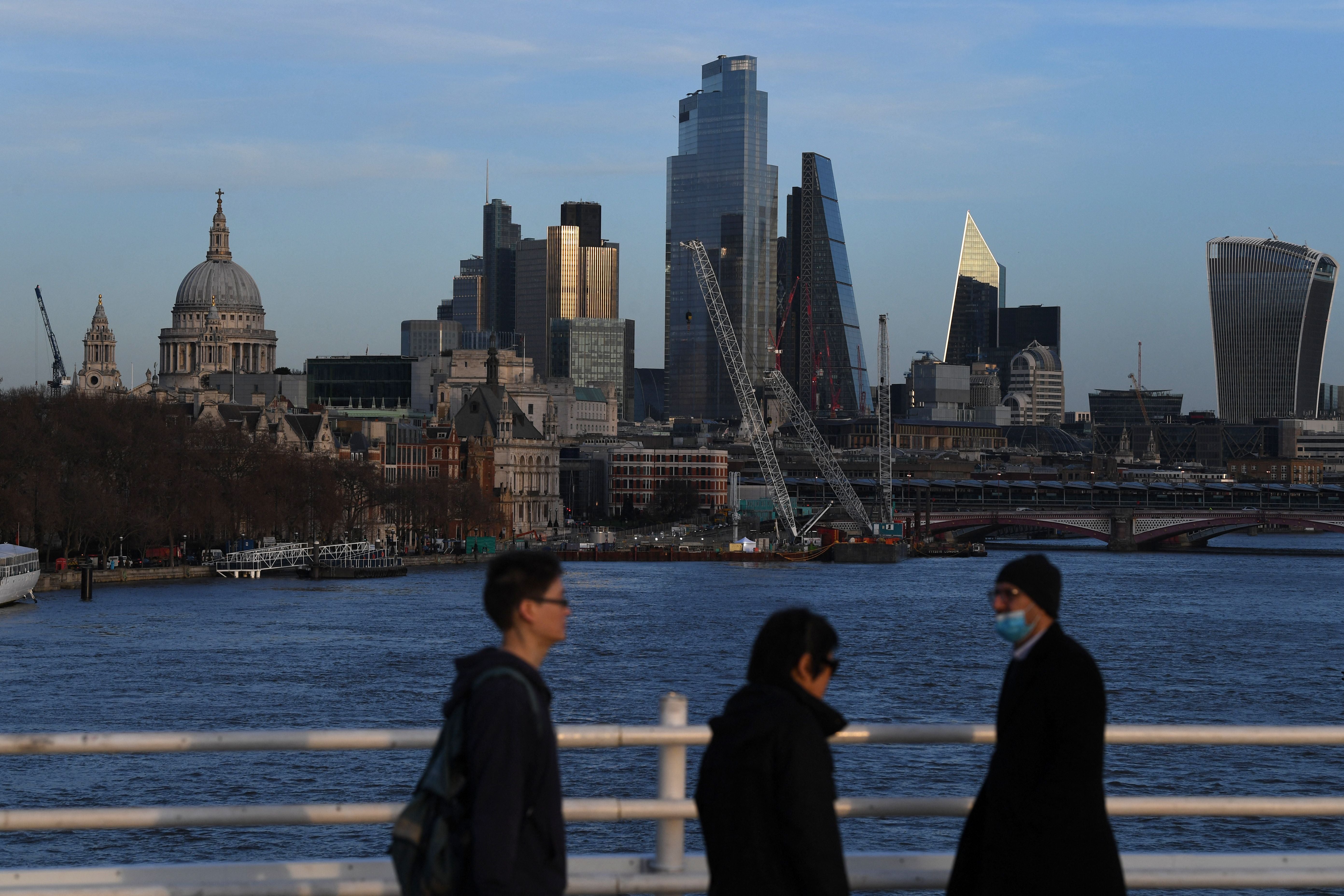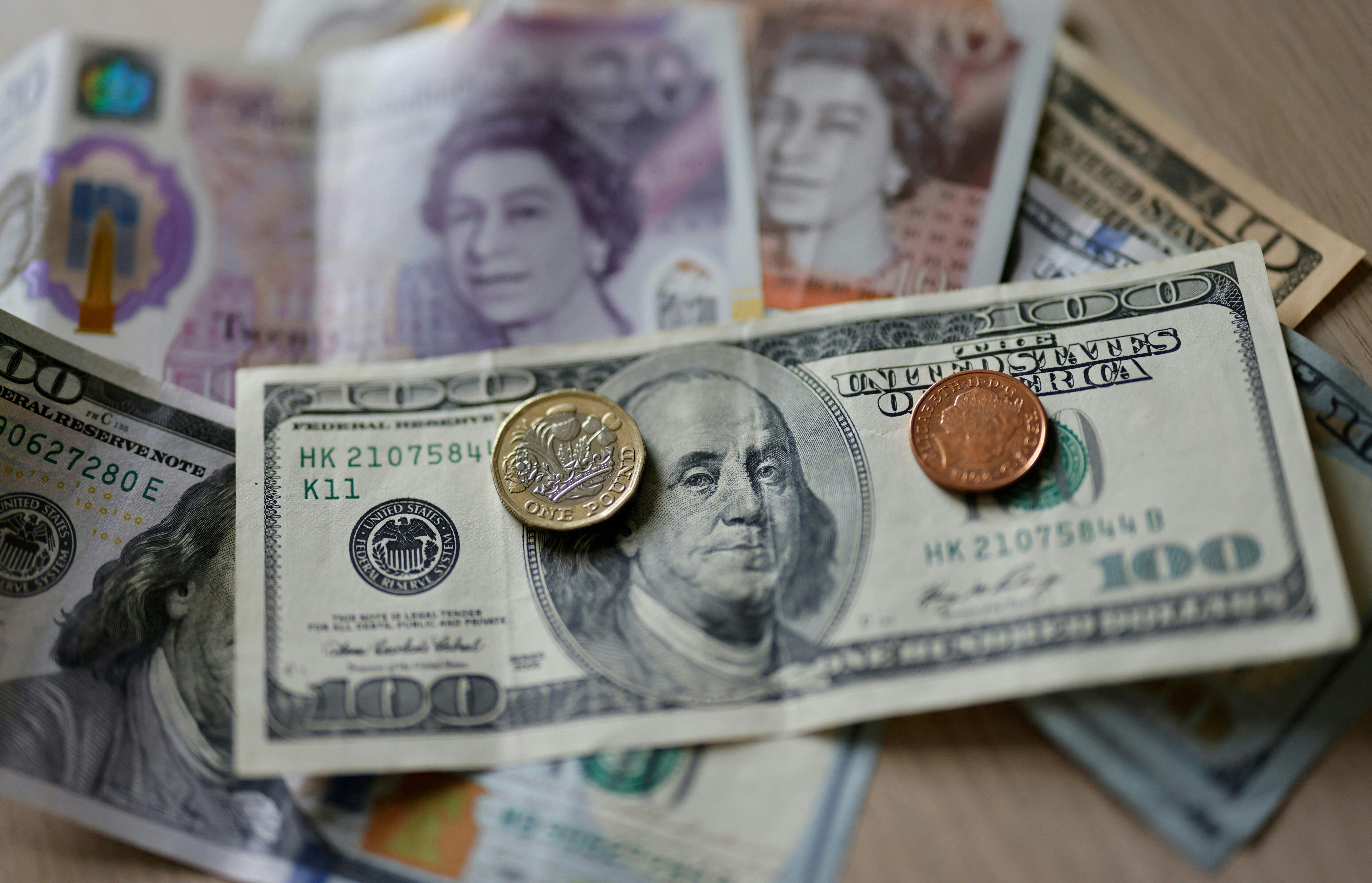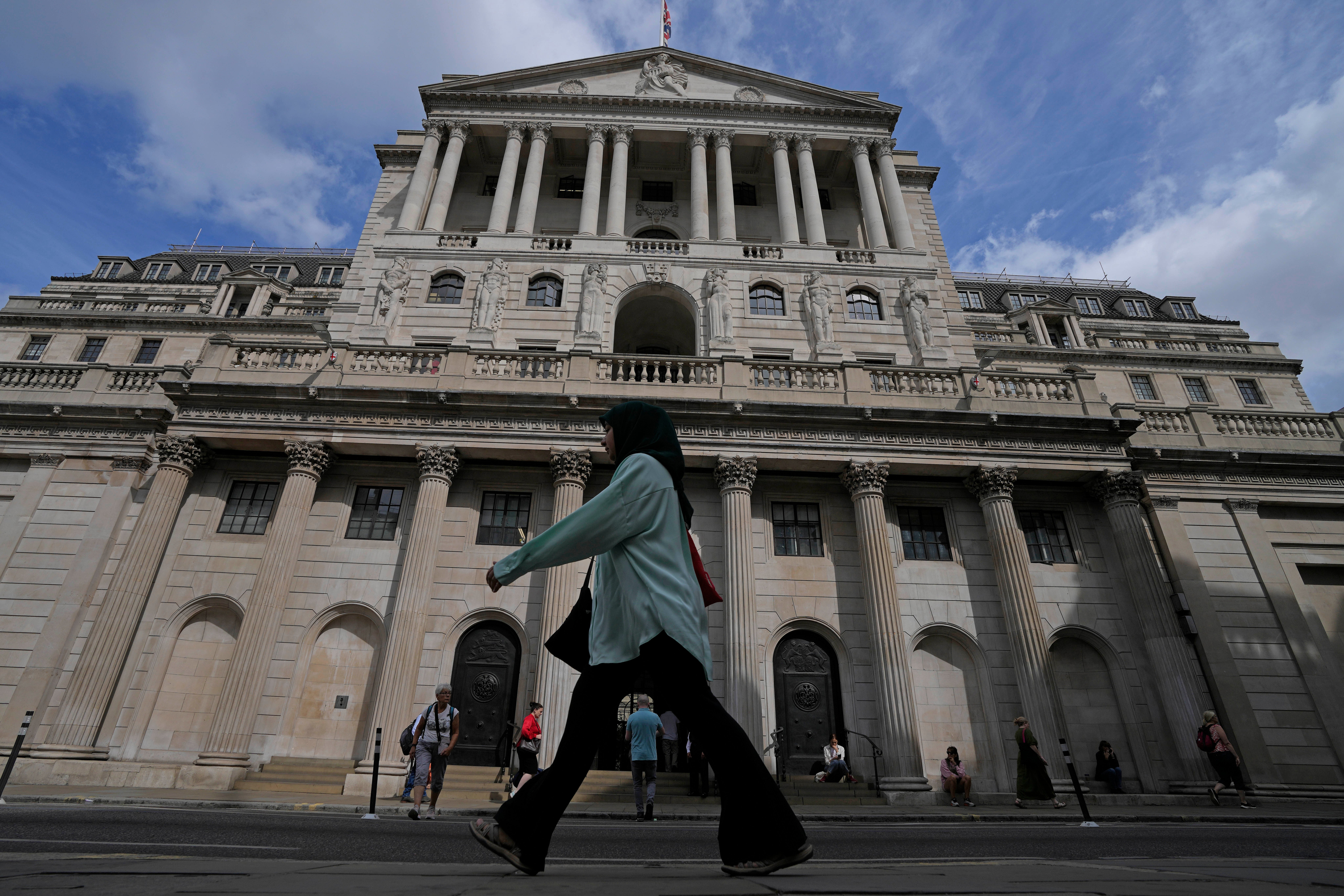Pound sinks to new 37-year low as inflation soars
Sterling dropped below $1.14 taking it to its worst point since 1985

Your support helps us to tell the story
From reproductive rights to climate change to Big Tech, The Independent is on the ground when the story is developing. Whether it's investigating the financials of Elon Musk's pro-Trump PAC or producing our latest documentary, 'The A Word', which shines a light on the American women fighting for reproductive rights, we know how important it is to parse out the facts from the messaging.
At such a critical moment in US history, we need reporters on the ground. Your donation allows us to keep sending journalists to speak to both sides of the story.
The Independent is trusted by Americans across the entire political spectrum. And unlike many other quality news outlets, we choose not to lock Americans out of our reporting and analysis with paywalls. We believe quality journalism should be available to everyone, paid for by those who can afford it.
Your support makes all the difference.The pound has hit a new 37-year low against the dollar as new official retail figures painted a bleak picture of the UK's economy.
Sterling dropped below $1.14 on Wednesday morning taking it to its worst point since 1985.
The drop came after newly released retail figures showed a fall of 1.6 per cent in August, compared to the 0.5 per cent decrease economists predicted.
“This morning's retail sales in the UK continued to show a deteriorating consumption picture in the UK, which emerged more from the continuation of a steady downtrend from last summer rather than the single grim data point in a rather volatile series,” said Francesco Pesole, a currency expert at ING.
“This has been the last important piece of data before the Bank of England meeting on Thursday and has hit the pound this morning.”
The pound regained some ground in the early afternoon but was still trading down around 0.5 per cent against the dollar, buying a little over $1.14. It lost 0.3 per cent against the euro, also trading at a little over €1.14.
Olivia Cross, economist at Capital Economics, said the figures suggested “that the downward momentum is gathering speed”, supporting the view that “the economy is already in recession”.
The drop came on the 30th anniversary of Black Wednesday, when the UK had to withdraw from the European Exchange Rate Mechanism (ERM). The ERM was designed to ensure that the exchange rates between European currencies remained stable.

Governments and central banks had to ensure that their currency did not fluctuate by more than 6 per cent from their European neighbours - a mark the UK missed on Black Wednesday in September 1992.
The value of the pound was dropping quickly and John Major’s government spent billions trying to prop it up but it could not keep up with currency traders desperate to sell pounds.
It caused the government to pull out of the ERM, damaging the Conservative Party's reputation on handling the economy for years.

Sterling has been weak against the dollar for months, largely because of the strength of the US currency. The euro has also been at multi-decade lows against the dollar.
The drop comes as UK inflation fell slightly to 9.9 per cent this week, after hitting its highest level since 1982 in July, according to the Office of National Statistics.
Although experts predicted that the figure would remain unchanged in August, the falling price of fuel helped bring it down.
“The easing in the annual inflation rate in August 2022 reflected principally a fall in the price of motor fuels in the transport part of the index,” the ONS said.
“Smaller, partially offsetting, upward effects came from price rises for food and non-alcoholic beverages, miscellaneous goods and services, and clothing and footwear,” it added.
Despite falling back below 10 per cent, George Lagarias, chief economist at accountancy firm Mazars, said inflation would not drop off significantly for some time.
“Higher energy prices for all the previous months have fully fed into most supply chains and it will take months of lower oil for end-consumer prices to meaningfully come down again. Inflation may well remain a central theme until at least the end of the year,” he said.
“However, input costs have begun to drop and we should see this feeding into general prices eventually.”


Join our commenting forum
Join thought-provoking conversations, follow other Independent readers and see their replies
Comments